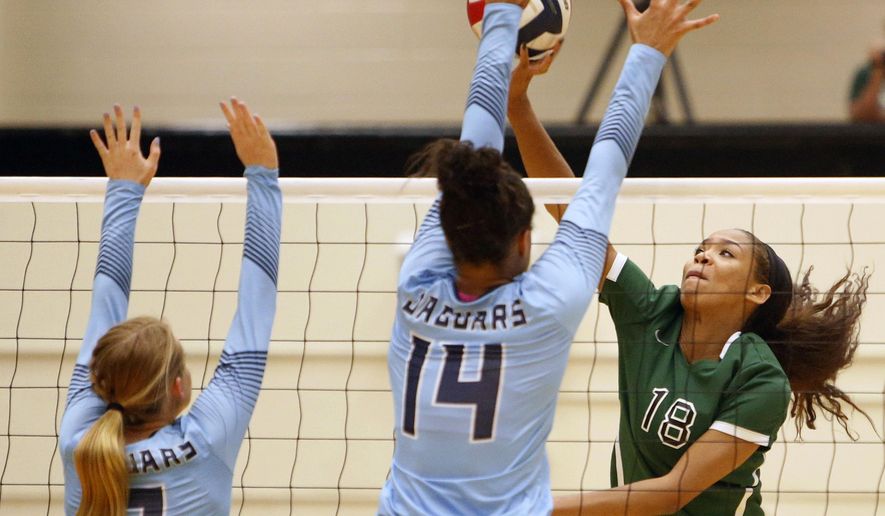Midway through her freshman season at Oregon State, Kyla Waiters locked herself in the bathroom, and a concerned teacher’s assistant called 911. “I just thought I didn’t want to live anymore,” Waiters said.
Her decision a few months earlier to accept a scholarship to play volleyball for coach Mark Barnard’s team had been seeded with promises and hope. Named to an All-American team and attracting interest from more than a dozen Division I schools, Waiters said Barnard and his staff had promised to teach her a new position and give her a redshirt year to learn it.
Before a single semester had passed, all that was gone.
By the end of the season, Waiters - her arms and wrists scarred from a cutting habit she said she’d developed due to the stress of volleyball at Oregon State - was in Barnard’s office, being told he was shopping her scholarship. Her best plan, he said, would be to find another school.
“The sooner you move on, the better,” Barnard told her in a conversation she recorded and provided to The Associated Press.
That message came only weeks after police responded to the 911 call. Waiters is the third Oregon State player to seriously contemplate suicide since 2016.
Waiters was among a half-dozen players who reached out to the AP after a July story in which players, parents and people familiar with the program said Oregon State volleyball coaches physically and emotionally abused some players while the administration took no outward steps to address complaints.
About a year after Waiters’ call to the police, another promising freshman, Amya Small, was taken to the hospital after taking dozens of over-the-counter medications.
Waiters said she had been stunned to read about Small’s experience.
“I genuinely thought the article was written about me, that’s how similar it was to Amya’s story,” Waiters said.
She is among 11 players to quit or transfer from the Oregon State program since 2016, with some of them forced out using similar methods.
Two additional players - setter Delaney Taylor and another who did not want her name used for fear of backlash from former teammates - joined Waiters in telling AP they had also experienced many of the abuses outlined in the July story.
The AP has reached out multiple times to ask Barnard and administrators for comment. They would not make Barnard available for an interview, and school spokesman Steve Clark said “OSU continues to dispute the allegations that you share or make.”
Several former players mounted a campaign to defend Barnard, who has a four-year head coaching record of 53-73 that includes one trip to the NCAA tournament followed by two last-place finishes in the Pac-12.
“I would say what’s described there is 180 degrees from what actually happened,” 2019 graduate Kory Cheshire told the AP, referring to the July story.
But Waiters, Taylor and the other former player who reached out to AP all said they had endured the same sort of treatment described in the July report, including being pressured to practice while injured and being emotionally manipulated to give up their spots on the team.
The player who did not want her name used said Barnard tried to ease her out of the program by telling her that her teammates didn’t like her and that she would be miserable if she returned the next season.
Taylor said Barnard promoted a “toxic environment” that pitted starters against non-starters.
Both she and Waiters said captains ran a “three-strike” system that would trigger conditioning punishments for players who reached the strike threshold. Taylor said Barnard signed off on the system, while employing his own form of punishment during games.
“Whenever there was a mistake made, you’d come into the huddle and a player would hold herself accountable and say ‘my bad,’” Taylor said. “After that, I’d hear him say, on multiple occasions, ‘It was my bad for recruiting you.’”
Taylor also said she was forced to practice injured, adding hers to other accounts from players who say they were pushed past the point of safety.
Clark said trainers, not coaches, make decisions about players’ availability when they’re injured.
Waiters said she had played middle hitter through most of her prep career, but Oregon State coaches told her they would bring her to the Corvallis, Oregon, campus and give her a year to learn how to play outside hitter.
Midway through the season, she said Barnard put her in a game and burned her redshirt season.
“We had players getting hurt left and right but he said he wasn’t going to just throw me in a game,” said Waiters, who now plays at Nevada. “And then that’s exactly what he did.”
Not long after that, Waiters said, her suicidal thoughts became more intense, which led to the 911 call.
Waiters said Barnard told her the 911 call and mental-health issues wouldn’t impact her scholarship. Waiters said that, as he had done with other players, Barnard had promised her a four-year ride but signed her to a letter of intent good only for one year. Clark said the school abides by NCAA rules that forbid coaching staffs from pulling scholarships for performance-related reasons.
Barnard based his effort to get rid of Waiters on the notion that lifestyle choices were doing her in. In the meeting she recorded, the coach frequently brought up a secondhand account that Waiters had made plans with a recruit to smoke marijuana. Waiters denied smoking marijuana.
Barnard then reminded Waiters of an earlier conversation in which he said they talked about a path for her that might not include volleyball.
“We need to get working on this one,” he told her. “So, realistically we’ve got to be able to turn over this scholarship fast. We’re already talking to other people.”




Please read our comment policy before commenting.